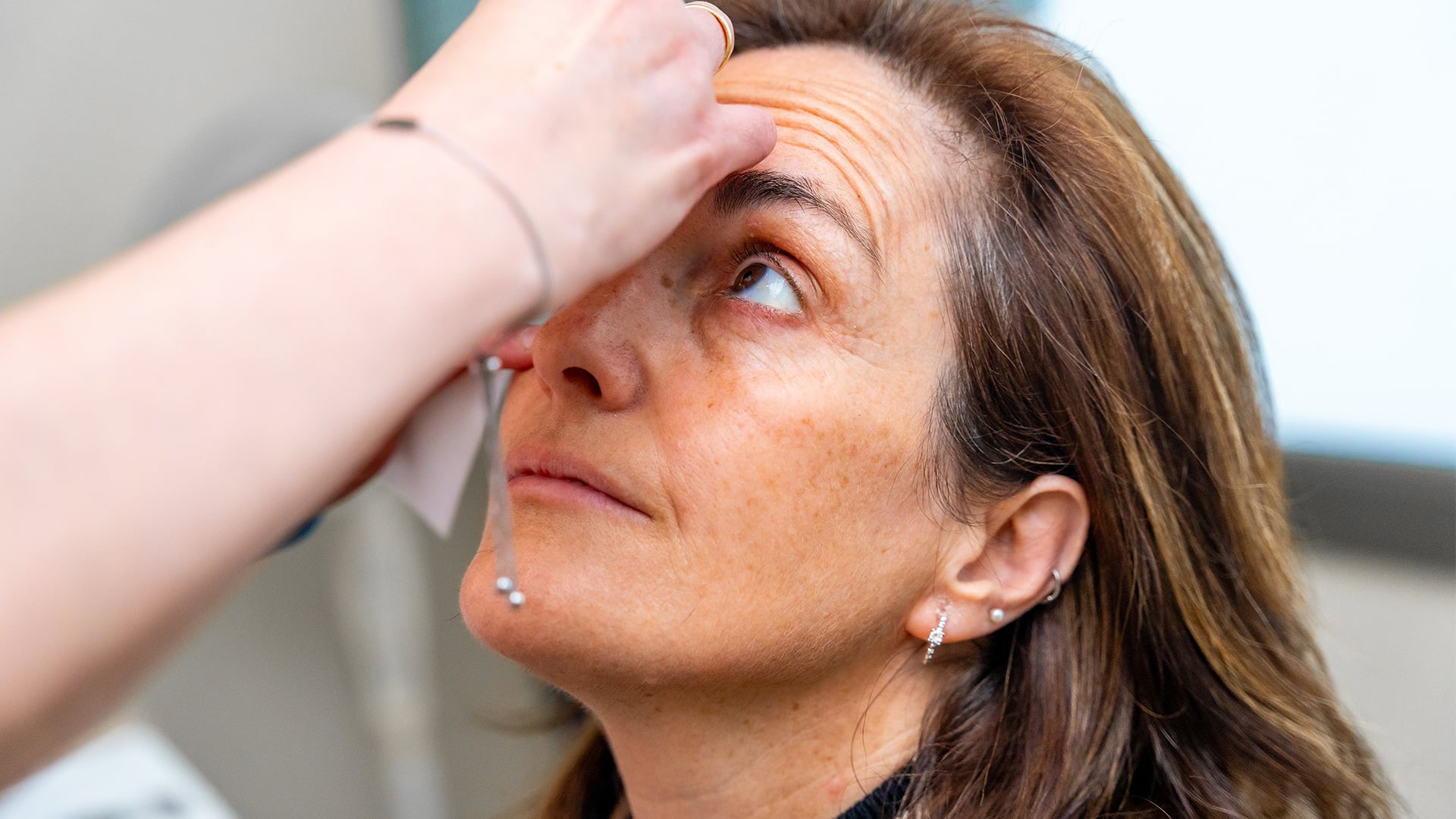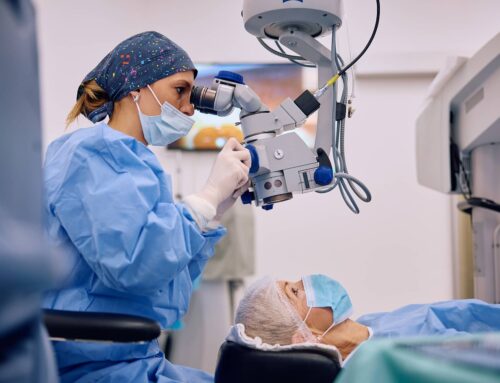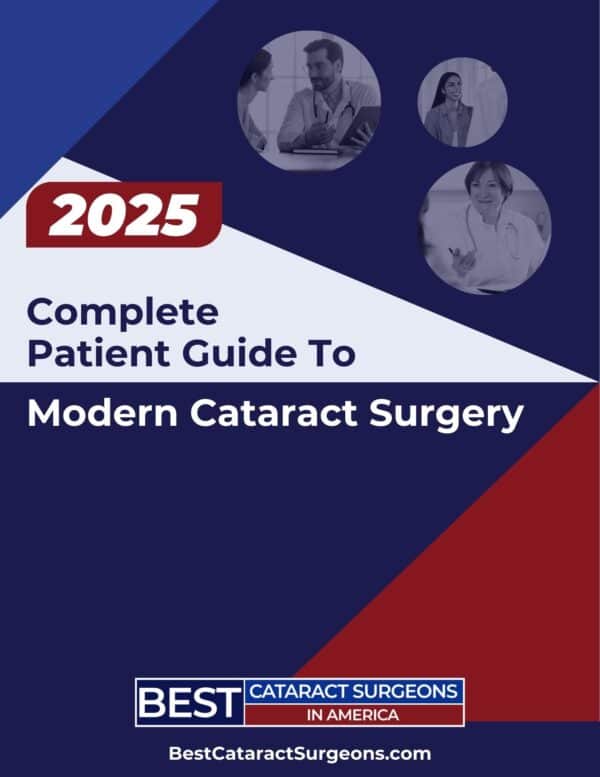Are you prepping to fix your clouded, cataract vision and wondering what the recovery time is for cataract surgery?
At Best Cataract Surgeons, we understand that while the prospect of clearer vision excites you, questions about healing timelines, and post-operative care weigh heavily on you. As the top doctor-led patient resource for modern cataract surgery, we’ll guide you through each phase while connecting you with elite specialists worldwide.
What The Cataract Surgery Recovery Process Looks Like
1. The First 24 Hours of Your Cataract Surgery Recovery.
In the immediate hours following your cataract surgery, your eye is protected with a lightweight shield to prevent accidental rubbing or pressure. You can expect to experience some mild discomfort and blurry vision, so you’ll need pre-arranged transportation home as driving isn’t permitted. Key steps for your first day of cataract surgery recovery, you’ll:
- Remove the eye shield 2-3 hours after reaching home.
- Begin prescribed antibiotic eye drops hourly (5-6 times applications).
- Start topical steroid eye drops every 2 hours.
- Don’t bend over or put your head below your waist.
- Wear your sterile eye patch overnight to prevent accidental touches, rubbing, scratching, etc.
Focus on minimal movement, getting a ton of rest, and strictly following your cataract surgeon’s post-operative instructions.
2. Early Phase Recovery After Cataract Eye Surgery (Days 2-7).
Within the first 48 hours, you’ll likely see dramatic vision improvements, though fluctuations are common as your eye adapts to its new intraocular lens (IOL). During this cataract surgery recovery time, what’s critical is:
- You should experience improved visual clarity by day 3.
- Best to avoid rubbing your eyes or exposing them to water, soap, or shampoo.
- Wear UV-protective sunglasses outdoors to protect your eyes from bright light.
- Continue the prescribed medication to prevent infection and manage inflammation.
- You may experience mild grittiness, excessive eye watering, light sensitivity, or redness in your eye, which are normal side effects.
There’s a next-day follow-up appointment for your surgeon to check in on how your eye is starting to heal and to ensure no early signs of infection or complications. During this appointment, your prescription is reviewed, questions are answered, and you may be cleared to drive.
3. Mid-Phase Cataract Surgery Recovery Time (Weeks 2-4)
At this point, your eye should be entering stabilization with visual sharpness improving daily. While routine activities can resume, certain precautions remain. Essential guidelines include:
- You can do computer work, but take 10-minute breaks, hourly.
- Exercise is okay as long as it’s light; avoid lifting heavy weights.
- Wait 4 weeks before using any eye products/makeup.
- Swimming, saunas, and hot tubs are off-limits until week 6.
- Continue to use your eye shield at night.
Did you know that premium IOLs (multifocal/toric) may require 2-3 weeks for full neural adaptation? Explore our Best Lens Implant For Cataract Surgery in 2024 | Best Cataract Surgeons In America.
4. Complete Recovery After Cataract Surgery (4-8 weeks).
By this stage, 90% of patients are in full recovery and should achieve their final visual outcome. Your cataract surgeon will:
- Confirm full corneal healing.
- Update your glasses prescription if needed.
- Establish a long-term eye care plan to help you maintain your improved vision.
You may need to continue wearing sunglasses during daylight hours for 6-12 months to protect your eyes from bright light and reduce discomfort. Remember to schedule an appointment every year to monitor your eyes for potential complications or changes.
Critical Precautions During Your Cataract Surgery Recovery Time
- Avoid swimming/hot tubs for 6 weeks
- No heavy lifting (>25 lbs) for 4 weeks
- Wear shields during sleep for 2 weeks
- Complete all prescribed drops
- Attend all post-op checks (day 1, week 1, month 1)
FAQ – Common Cataract Surgery Recovery Questions
Everything You Need to Know About Modern Cataract Surgery Is Right Here
At Best Cataract Surgeons, we understand that cataract surgery is more than a medical procedure – it’s a journey to reclaiming your visual freedom. Our nationwide network of board-certified ophthalmologists is dedicated to guiding you through this transformative experience with cutting-edge surgical techniques and personalized care. From comprehensive resources to detailed explanations and interactive tools, we’re committed to helping you navigate every step of your path to a clearer vision.
Ready to transform your vision and reclaim life’s vivid details? Use our Find a Surgeon tool to connect with top specialists in your area and schedule your personalized consultation today.











